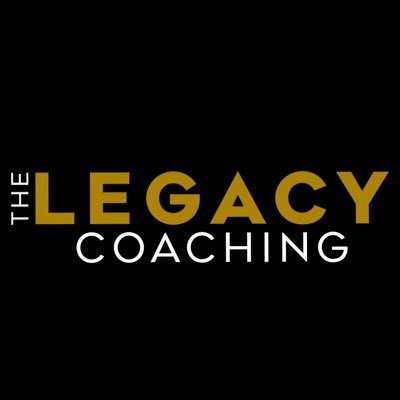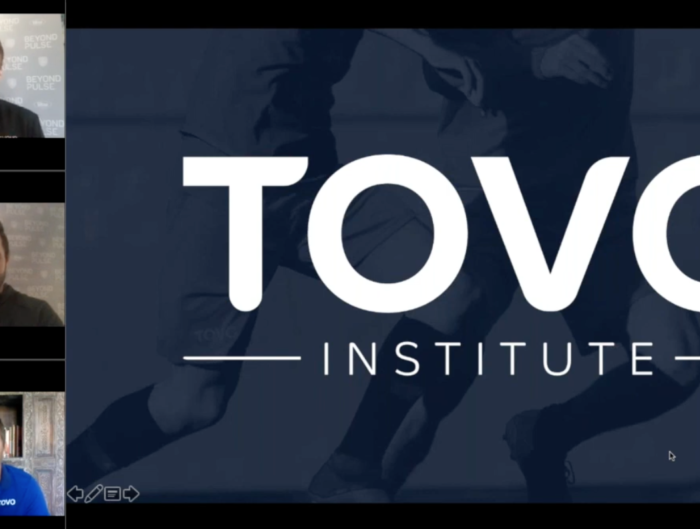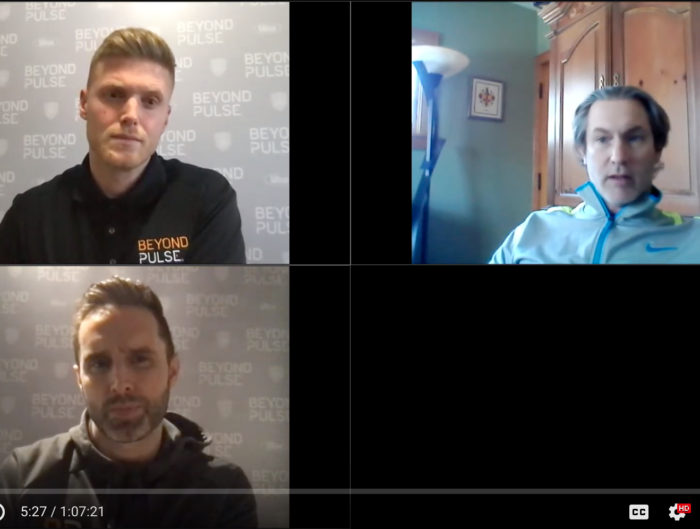It was a regular Tuesday summer evening in a local youth soccer league, I found myself filling in as the head coach for my 4-year-old cousin’s team. I was excited to take on the role as I love any opportunity to better people through the vehicle of sport. Throughout the game, I witnessed kids stopping to hug each other, strategic dandelion picking, and the opposing goalie even shifted the mini net to meet a missed kick so that we could score. It was so pure you couldn’t help but smile. I also carefully observed the parents and coaches. The one thing that stood out most to me was how they would cheer the loudest when leading up to and after a goal – the “desired outcomes”. Sound familiar? Literally chasing outcomes and only celebrating when the “good” happens.

Then I made the connection. This is when the formation of the athlete identity begins. When these kids are 4-years-old and participating in sport, they are not driven by winning. They are driven by love. You can see it in them so clearly. When they are upset because they don’t get an opportunity to score, it has nothing to do with the goal and everything to do with validation from their parents and coaches that comes with the goal. Fast forward 20 years and this is the promotion or award that we are seeking. The answer to it all, is love.
Before we dive into this further I need to tell you about the moment that set me on this path…
I played sports my entire life. My favorite sport was (American) football and I was fortunate enough to play all the way through university. After my career as an athlete ended, I was a coach for the Hamilton Tiger-Cats in the Canadian Football League. Then I moved south to obtain a Master’s Degree in Coaching Education at Ohio University. While in Ohio, I was coaching with their division 1 football program as an offensive graduate assistant. After my two-year stint with the Bobcats, I experienced a devastating knee injury playing pickup basketball and was forced to go back home to Canada to recover. In that time I realized that as much as I loved coaching, it was not going to be my full-time career. I then limped into the closest lululemon store with my resume and there I was, freshly hired within a week.
Now, this is where it gets interesting, a week into the job, my manager took me out for a coffee to talk about my goals (a common occurrence within the lululemon culture). She asked me one simple question: “Who are you?” I quickly jumped to respond, “I’m a football coach” and she looked deep into my eyes and said “Vince, that is not who you are, that is just what you do, Who are you?”
I had no response.
With tears streaming down my face, I immediately felt the pain of removing the identity I created and so heavily relied on as if I were ripping off an old Band-Aid. In the same breath, I also felt this deep sense of gratitude as I had never been given the space to even THINK about that question.
I was always told I was an athlete, I always introduced myself as an athlete and I believed that was my identity.
In that life-altering moment I painfully realized that for my entire life I allowed what I did to define who I was.
—————-
It all makes sense doesn’t it?
Think about it, from the moment an athlete puts on the jersey, what do they receive from others? Acknowledgement, attention, recognition, validation. I believe these are all just forms of love. So when they finish playing the sport, they don’t lose who they are, they merely lose a vehicle that they once used to access love.
Personally, when I played football I remember seeking validation from my coaches in the form of compliments or words of affirmation. I was instantly validated with a “great job, Vince” or “nice catch, Vince” and it would give me an instant shot of validation until I sought out the next opportunity. What I didn’t realize was that I never gave this to myself. Not once did I acknowledge myself for anything as I always relied on it from others. Every athlete experiences this love differently. For some it could be as simple as a role you give them, maybe something you do for them, while others it could be a high five, a hug, or a simple compliment.
The great thing about this theory is that this love we all seek from those around us is entirely within our control to give to ourselves.
This is where you come in as a coach or parent.

The solution is to ask yourself and your athletes, “what is it that others give you to make me you feel validated”? Then ask, “do I give this same validation to myself”? When we give ourselves what we seek from those around us, we stop relying on others for it and (this is the best part) we now become a source of it for others. You are either seeking love for yourself or you are a source of it for others. This is the difficult yet simple difference between emptiness and fulfillment.
What we give to ourselves is directly what we give to those around us. Imagine if your entire team unconditionally loved themselves? They would also unconditionally love their entire team, whoa!
Okay, so a bunch of athletes who love themselves, what’s the big deal?
Within and without sport, love leads, it is inclusive, it unites, it creates that deeper connection that you may not be able to see on the score sheet, but as a coach you know the everlasting power it holds. If you are conditional with your athletes they will be conditional with themselves. If you have athletes that unconditionally love themselves their self-worth won’t disappear with their identity of being an athlete, when they eventually transition out of the sport.
The real work as a coach is to teach our athletes to unconditionally love themselves. But how do we do it?
Here are four tips to coach athletes to achieve fulfillment:
1) Unconditionally love yourself (yes, you!)
- Whatever you are giving to yourself, you are directly giving to your athletes whether you believe so or not. If you are having a hard time acknowledging your athletes, chances are you are having a difficult time acknowledging yourself…
- The answer is always you, if they see you relying on wins to feel good about yourself, they will follow suit.
2) Coach your athletes using a mirror, not a window.
- Guide them to take ownership in each situation and this will help them take ownership in their lives.
- It’s not what you think about them, it’s what they think of themselves that is most important
- Turn your coaching points into questions, instead of “You did this wrong, this is how you should do it” ask them, “What could you do differently next time?”
3) Acknowledge their own unique processes
- Celebrate skills and characteristics that are within their control, whether it’s an athlete who brings light to the locker room or the backup who consistently works hard at practice.
- Everyone on the team holds onto the rope and it is important to note that everyone holds onto it differently.
4) Positively shift your language to empower
- As coaches, athletes hang on to our every word. We have been given a great position of influence for these young people and you are a source of validation to them.
- Every word we say is the truth. If we constantly tell our athletes, “You are slow” – they will be slow. However if we tell our athletes, “You can be faster” we are saying the exact same thing with positive framing.
When you love yourself and you live with purpose, you will leave your legacy.
Love it. Live it. Leave it.
Vince Luciani is the founder of The Legacy Coaching – Mental training for life and sport delivered to teams and individuals of all ages with a mindful approach. They have guided over 8000 athletes from all over North America including hundreds of professionals to discover who they are beyond what they do. They do this by facilitating one-of-a-kind interactive and in-depth written exercises that give athletes the space to define their own answers to life’s big questions.

 FRA
FRA































